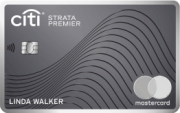The content on this page is accurate as of the posting date; however, some of the offers mentioned may have expired.

The two-day July meeting of the Federal Open Market Committee ended up with another 0.75-point hike. This makes the second triple-sized rate hike this year, with the first one issued in mid-June.
A higher benchmark rate means that credit products will become more expensive for consumers. However, at the same time, higher rates aim to cool inflation by slowing economic activity. That looks great on paper, but there's always a lag, and we won't see any changes in the economy until the end of the summer at the earliest.
The central bank is raising borrowing costs to try to slow spending, cool the economy, and defeat the inflation that hasn't been that bad for years. So, brace yourself for inevitable higher credit card interest rates, mortgage rates, and auto loan rates.
Those who already have active credit cards with variable interest rates (which is the majority of credit cards) should expect a notification about their credit card interest rate increase soon. Typically, banks do not wait long when it comes to increasing interest rates. For example, if your credit card interest rate is 17.49%, your new rate will most likely be 18.24% (i.e., 17.49% + 0.75%).
A higher interest rate on your credit card means your card will be even more expensive if you have a habit of carrying a balance on your credit cards. If you can't pay off the card balance right away, you may need some help. A balance transfer credit card may be a good option when it comes to paying off your debt without putting a strain on your budget. Balance transfer credit cards give you some time (typically one year) to pay off the transferred balance at the 0% interest rate. Just keep in mind that when the promotional rate is over, a go-to APR will come into effect.






